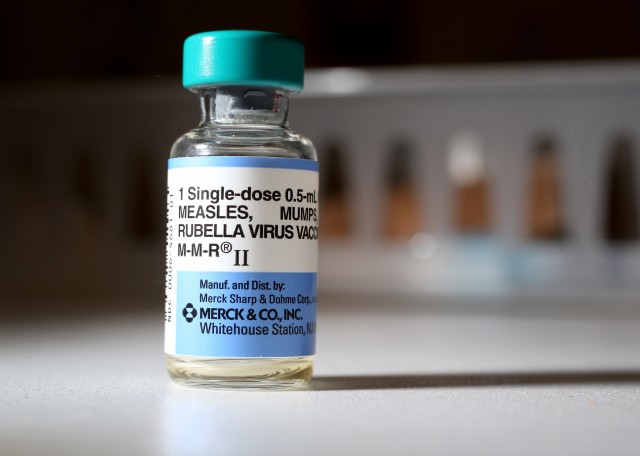Earlier Wednesday, California's two U.S. senators issued a joint letter calling for a repeal of the state's "personal belief exemption."
“While a small number of children cannot be vaccinated due to an underlying medical condition, we believe there should be no such thing as a philosophical or personal belief exemption, since everyone uses public spaces,” Sens. Barbara Boxer and Dianne Feinstein wrote. “As we have learned in the past month, parents who refuse to vaccinate their children not only put their own family at risk, but they also endanger other families who choose to vaccinate.”
Childhood vaccine has become an emotionally charged topic and a national issue amid a measles outbreak that has sickened more than 100 people across the United States and in Mexico.
Like most other states, California allows religious or personal belief exemptions. According to the National Conference of State Legislatures, California is among 20 states that allow for personal belief exemptions and 48 that allow for religious exemptions.
Parents cite a variety of reasons for not immunizing their children, among them: religious values, concerns the shots could cause illness and a belief that allowing children to get sick helps them to build a stronger immune system.
Public health officials believe an immunization rate of at least 90 percent in all communities, including schools, is critical to minimizing the potential for a disease outbreak. Statistics reported recently by the state Department of Public Health show 89.4 percent of children in California child-care facilities -- kids between age 2 and 5 -- had received all required vaccinations at the start of the 2014-15 school year.
The report showed 2.67 percent of those children -- about 12,500 statewide -- were unvaccinated due to personal belief exemptions. About 2,500 students were unvaccinated due to permanent medical exemptions -- the only group that would remain exempt under Pan's proposal.
Pan, who previously served in the Assembly, was the author of another vaccination bill that took effect last year. It requires parents who don't have their children vaccinated for non-religious reasons to get a note from the doctor's office before enrolling their children in school.
A spokesman for Gov. Jerry Brown, who signed that bill, did not say if the governor would oppose efforts to end exemptions.
"The Governor believes that vaccinations are profoundly important and a major public health benefit and any bill that reaches his desk will be closely considered," Spokesman Evan Westrup wrote in an e-mail.
